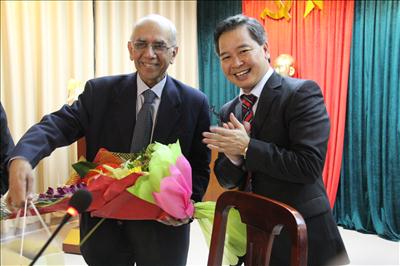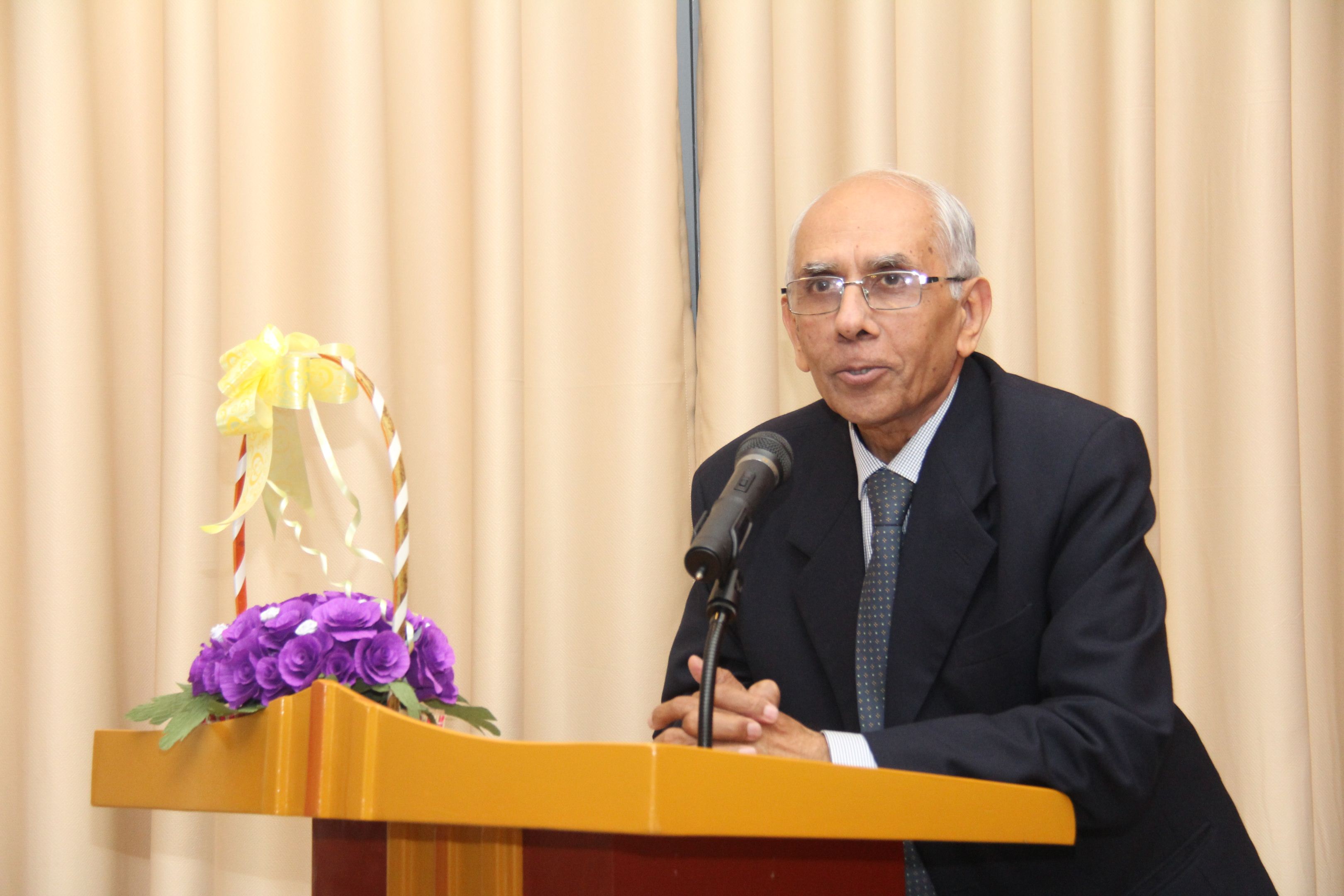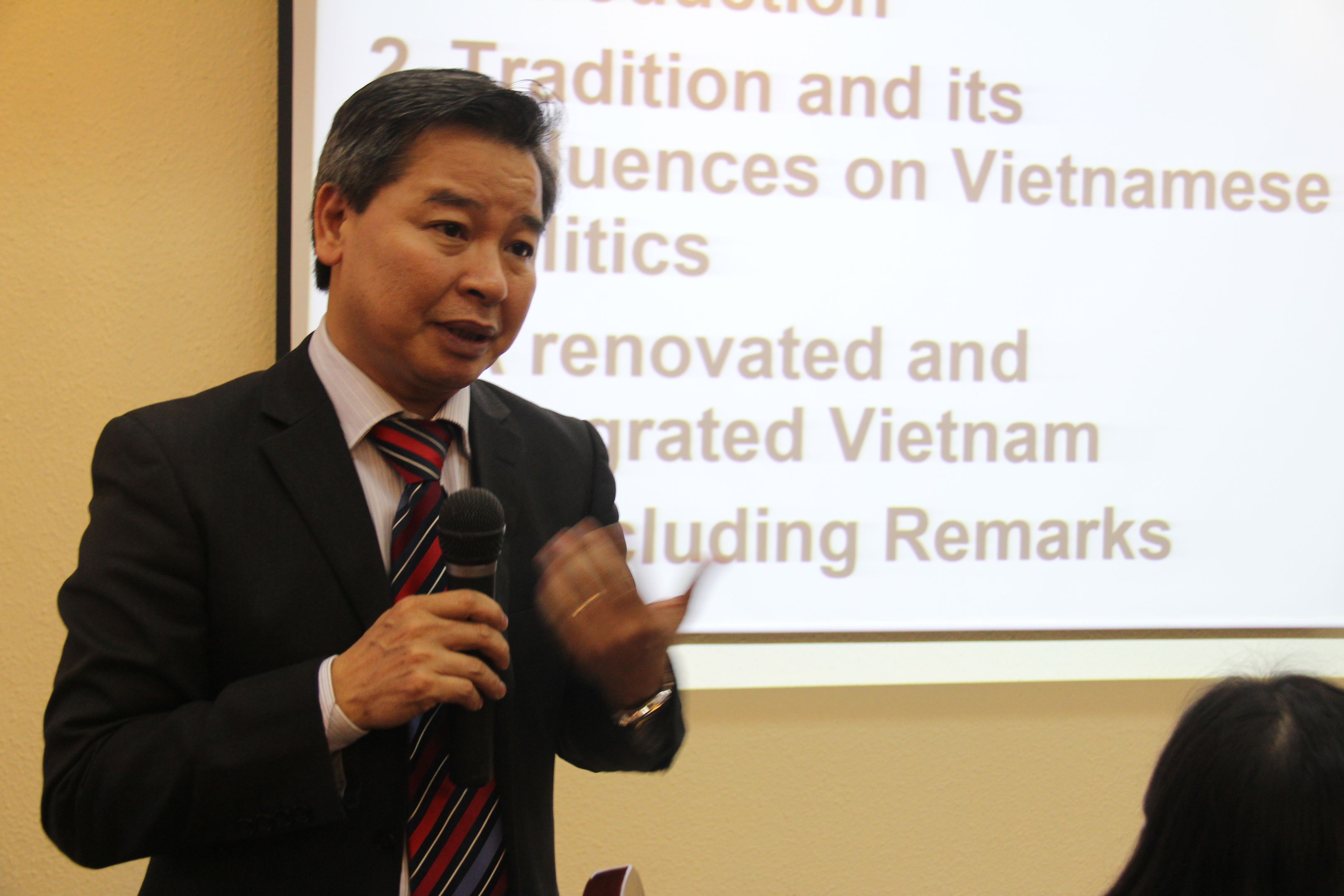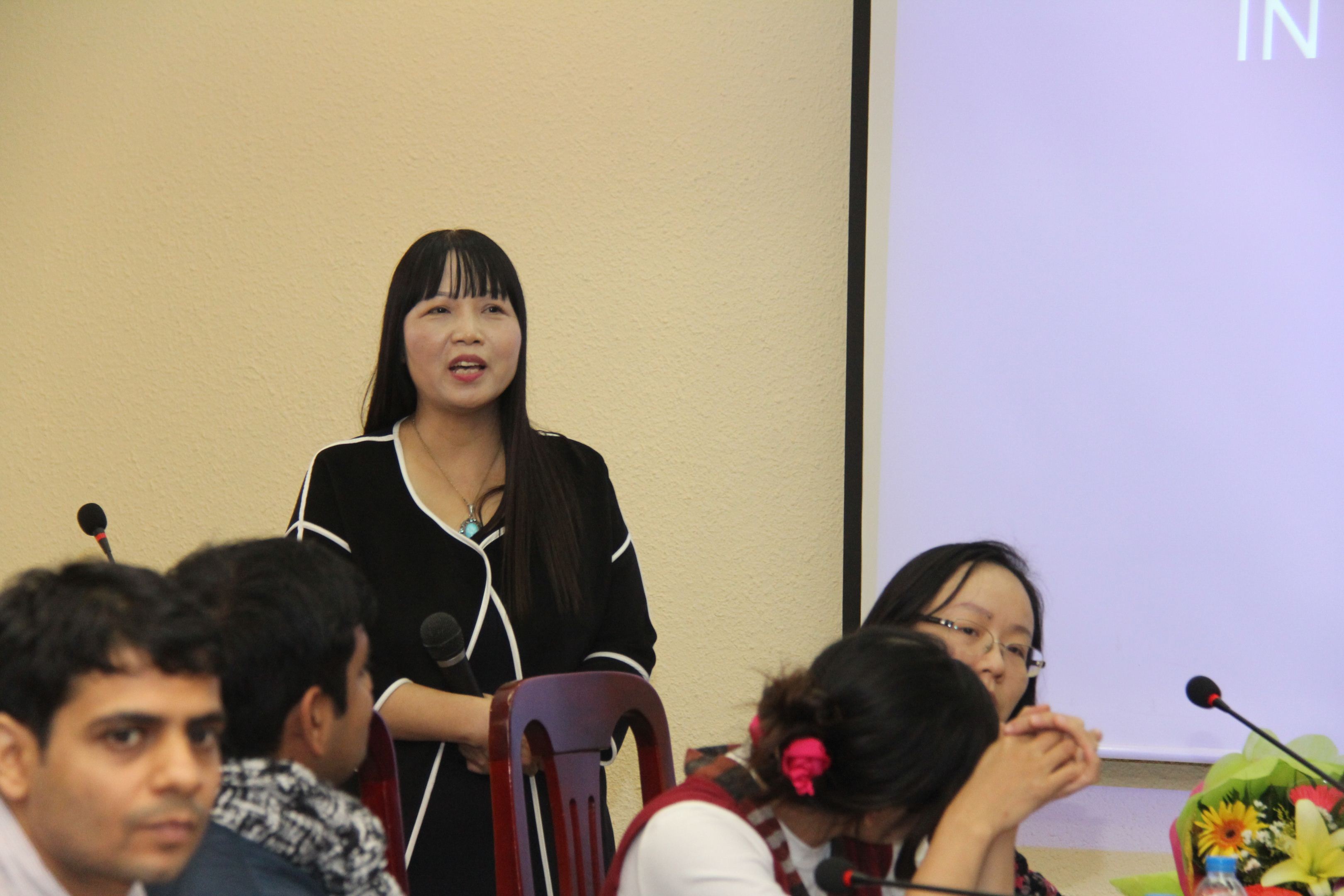
To open up the meeting, Mr. Neelakanta Ravi said that this is a good opportunity to connect Indian and Vietnamese students together. According to the Former Indian Ambassador to Vietnam, the India - Vietnam relationship is the example of a long-term and sustainable relationship between two countries sharing many common historical and cultural characteristics, especially as both countries went through many struggles for national independence. The India-Vietnam relationship started during the struggle for independence and lasted until today. Mr. Neelakantan Ravi further added the relationship in the past is a solid foundation for the current generation to continue promoting and developing. Especially, as youth are living in a peaceful environment and are able to access new technologies, the exchanges and connections will become more convenient and easier. Former Indian Ambassador also informed the Government of India encouraged exchanges and intercourses, thanks to which students of the two countries can learn from each other and study each other’s culture, history and society.

Mr. Neelakanta Ravi delivers his opening speech
In response, Assoc. Prof. Dr. Pham Quang Minh expressed his appreaciation to Neelakantan Ravi for having taken his time to visit USSH and especially the Faculty of Oriental Studies. The Vice Rector said during its 10 years of development, the Division of Indian Studies of the Faculty of Oriental Studies achieved many successes thanks to the Indian Embassy’s support, and implemented various programs with the Embassy such as student and scholar exchanges, postgraduate training and performances by Indian artists. Through these activities, the Division of Indian Studies, Faculty of Oriental Studies in particular and USSH in general have the opportunities to expand the comprehensive understanding and perception of India. Therefore, the reception of Former Indian Ambassador today is an expression of the highly-developed friendship between USSH and Indian partners in particular, and Vietnam and India in general.

Assoc. Prof. Dr Pham Quang Minh introduces about Vietnam to the Indian students
Next, Assoc. Prof. Dr. Pham Quang Minh gave a talk on "The economic and political development in Vietnam". Through his presentation, the Vice Rector made a summary of Vietnam’s geographical, economic, historical and political features and Vietnamese cultural characteristics to the BIMS’ students. Historically, Vietnam overcame many phases being partitioned due to external invasions and by 1975 had actually united. However, the Vietnamese have common characteristics such as the wet rice culture, village culture, the social and cultural influences of Confucianism and the tradition of fighting against aggressors. Therefore, it can be said that Vietnam is a united and cohesive country. Since 1986 when the Doi Moi policy was created, Vietnam has comprehensively changed through economic reforms, political innovations, cultural revitalism and been pursuing multilateral and diversified foreign policies. There has been noticeable progress in economic growth, foreign investment and poverty alleviation. In relation to other Asian countries like India, Vietnam wants to discuss and learn from both their similarities and differences.
Next, Assoc. Prof. Dr. Do Thu Ha (Dean of the Division of Indian Studies, Faculty of Oriental Studies) presented about the "The social and cultural situation" in Vietnam. The presentation clarified some issues such as the basic values of Vietnamese lifestyle, Vietnamese habits and customs, and dos and don’ts in Vietnam. Assoc. Prof. Dr. Do Thu Ha outlined the basic features of Vietnamese culture, a diverse and rich culture with 54 ethnic groups with many different religions and beliefs. With an open and witty speaking style, she created an expansive and friendly impression of Indian students. Specially, through the presentation, the students had a better understanding of Vietnamese socio-cultural and national characteristics as well as socio-cultural similarities and differences between Vietnam and India.

Assoc. Prof. Dr Do Thu Ha delivers her presentation
At the end of the meeting, the Indian students raised many questions to the two speakers on such issues as the harmony between traditional collective values and modern individual values in Vietnamese culture, and the Vietnam - China relations in the context of China’s rise and the recent tensions over the East Sea. These questions were answered briefly and concisely.
Author: Tran Minh
Reader Comments
Newer articles
Older articles